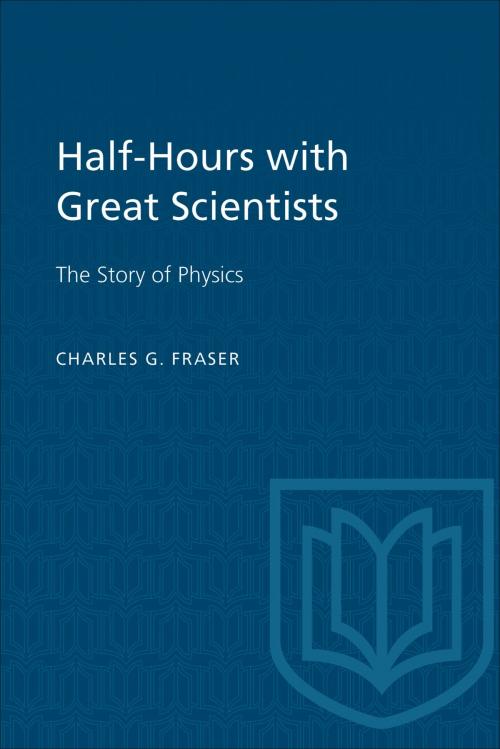Half-Hours with Great Scientists
The Story of Physics
Nonfiction, Science & Nature, Science, Other Sciences, History, Biography & Memoir, Reference| Author: | Charles G. Fraser | ISBN: | 9781487597245 |
| Publisher: | University of Toronto Press, Scholarly Publishing Division | Publication: | December 15, 1948 |
| Imprint: | Language: | English |
| Author: | Charles G. Fraser |
| ISBN: | 9781487597245 |
| Publisher: | University of Toronto Press, Scholarly Publishing Division |
| Publication: | December 15, 1948 |
| Imprint: | |
| Language: | English |
The present age is sometimes called the Scientific Age. This does not imply that every member of the community is an expert scientist—far from it. It does mean, however, that the labours of the scientists have given the age certain features which influence the life of every citizen to some degree. Accordingly it is desirable that as many as possible should have some understanding of the scientists' work, of their aims, their point of view, and their methods.
If we had a wishing-rug or some sort of spare-time car that could transport us at will to any place and time, we might visit the scientists of every age, see them at work, listen to their discussions, and even take a hand in the proceedings. The wishing-rug is not available but the literature of science will serve the purpose for anyone who will do the necessary searching, reading, and thinking. Unfortunately, some of that literature is decidedly inaccessible. To meet the difficulty this book has been written in the hope of bringing some of the most important passages of the literature of science within the reach of everyone.
Every past of the vast edifice of science is necessarily the work of some human being, and most of us become more interested in the building, and are able to understand and appreciate it better when we know who were the architects and builders and when, how, and why they did their work. The story of science is a noble epic of the struggle of man from ignorance toward knowledge and wisdom and toward the mastery of nature and of himself.
One purpose of science is to systematize experience, and a knowledge of the story of science has helped many in that process of organization. This book, therefore, offers the reader a cordial invitation to embark on a tour of visits with great scientists to learn from them the parts they played in the advancement of science and of the human race. Here is a treasure-house of fascinating information for all who are interested in the world around us, and the history of man's understanding of it.
The present age is sometimes called the Scientific Age. This does not imply that every member of the community is an expert scientist—far from it. It does mean, however, that the labours of the scientists have given the age certain features which influence the life of every citizen to some degree. Accordingly it is desirable that as many as possible should have some understanding of the scientists' work, of their aims, their point of view, and their methods.
If we had a wishing-rug or some sort of spare-time car that could transport us at will to any place and time, we might visit the scientists of every age, see them at work, listen to their discussions, and even take a hand in the proceedings. The wishing-rug is not available but the literature of science will serve the purpose for anyone who will do the necessary searching, reading, and thinking. Unfortunately, some of that literature is decidedly inaccessible. To meet the difficulty this book has been written in the hope of bringing some of the most important passages of the literature of science within the reach of everyone.
Every past of the vast edifice of science is necessarily the work of some human being, and most of us become more interested in the building, and are able to understand and appreciate it better when we know who were the architects and builders and when, how, and why they did their work. The story of science is a noble epic of the struggle of man from ignorance toward knowledge and wisdom and toward the mastery of nature and of himself.
One purpose of science is to systematize experience, and a knowledge of the story of science has helped many in that process of organization. This book, therefore, offers the reader a cordial invitation to embark on a tour of visits with great scientists to learn from them the parts they played in the advancement of science and of the human race. Here is a treasure-house of fascinating information for all who are interested in the world around us, and the history of man's understanding of it.















